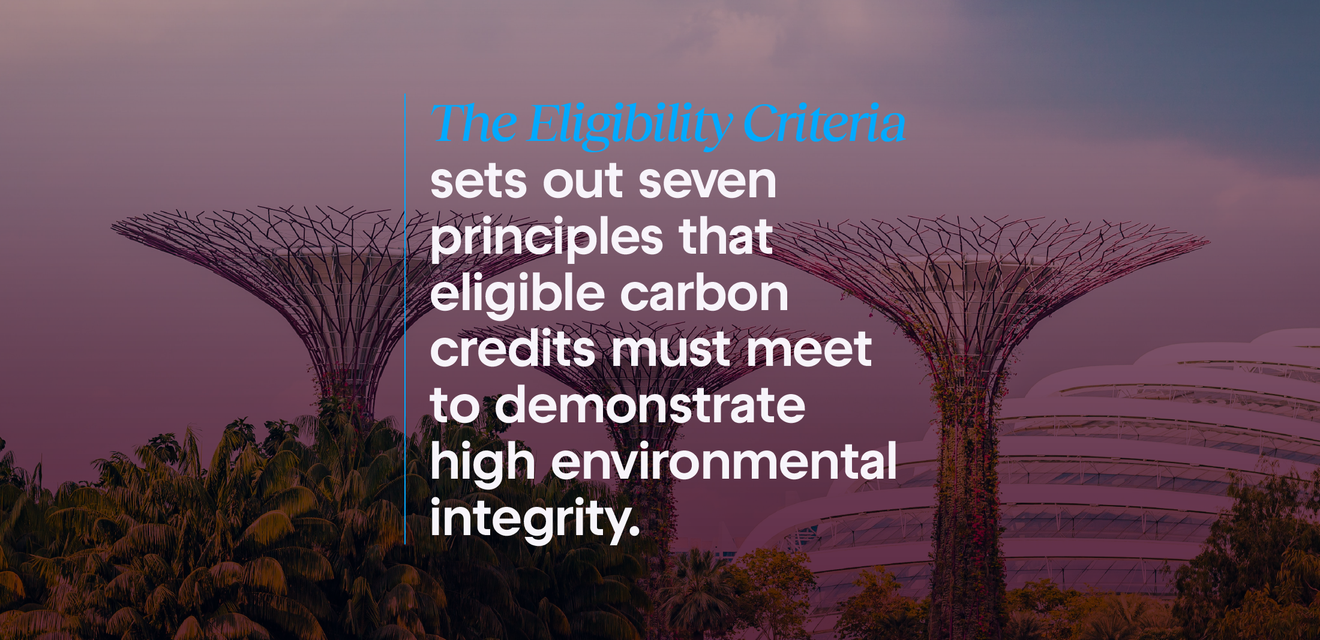Regulatory updates on Singapore's Carbon Tax

What is Singapore’s carbon tax policy?
On 1 January 2019, Singapore implemented a carbon tax of $5 per metric ton of carbon dioxide equivalent. This was the first carbon pricing scheme in Southeast Asia. In March 2022, the government announced that it would be progressively increasing the carbon tax as part of raising its climate ambition to encourage businesses and individuals to reduce their carbon footprint. The carbon tax will be raised to $25 per ton in 2024 and 2025 and $45 per ton in 2026 and 2027, aiming to reach $50 to $80 by 2030. [1]
How are carbon credits related to the carbon tax and which carbon credits are eligible?
From 2024, companies will be able to surrender high-quality international carbon credits to offset up to 5% of their taxable emissions. Details on the eligibility criteria for carbon credits are still being worked out through ongoing consultations with the industry and are set to be shared in 2023. [1] In 2022, the government introduced the International Carbon Credits (ICC) Framework to guide this process. On October 4th, 2023, the Singaporean government released the Eligibility Criteria under the ICC Framework, which is a list of acceptable international carbon credits that can be surrendered for the carbon tax. [2]
Why is this significant?
Since announcing the tax increase, companies have been awaiting more direction from the government on eligible carbon credits. The Eligibility Criteria sets out seven principles that eligible carbon credits must meet to demonstrate high environmental integrity. Credits that meet the Eligibility Criteria can be surrendered by companies to offset part of their taxable emissions. The Eligibility Criteria will also be reviewed periodically to ensure alignment with developments in both Article 6 of the Paris Agreement and the carbon markets.
What are the most important points from the Eligibility Criteria?
Firstly, the Eligibility Criteria take reference from the Carbon Offsetting and Reduction Scheme for International Aviation (CORSIA) standards. CORSIA standards are a set of carbon credit standards developed for the aviation industry, widely regarded as being among the most rigorous standards in the industry. Any emissions reduction or removal credits will also need to meet the seven, which were developed in consultation with more than 70 stakeholders across the industry and non-governmental organizations.
Secondly, credits to be surrendered should represent post-2020 emissions reductions. This means that the emissions reduction or removal activities from which carbon credits are generated must have occurred between January 1st, 2021, and December 31st, 2030, which is aligned with Singapore’s first Nationally Determined Contribution period [4].
Additionally, the international carbon credits eligible for carbon tax offset will need to be correspondingly adjusted using mechanisms set out under Article 6 of the Paris Agreement. The Article sets out how countries can trade emission reductions and removals with one another through bilateral or multilateral agreements to avoid double counting. This means that the carbon credits have to be authorized by the host countries of the carbon projects to be counted towards Singapore’s climate targets and not towards their own climate targets [4]. Moving forward, a list of eligible host countries, carbon credit programs, and methodologies that adhere to the Eligibility Criteria will be released by the end of this year.
What do we know about the list of eligible host countries, carbon crediting programs, and methodologies?
Singapore has concluded negotiations on Implementation Agreements with Ghana and Vietnam for Article 6-compliant carbon credit cooperation, and there is a Memorandum of Understanding to work towards Implementation Agreements with: Bhutan, Cambodia, Chile, Colombia, Dominican Republic, Indonesia, Kenya, Mongolia, Morocco, Papua New Guinea, Peru, and Sri Lanka. Singapore is also in active discussions with Brazil, Brunei, and Thailand. The carbon crediting programs included are the American Carbon Registry, the Architecture for REDD+ Transactions (ART), Global Carbon Council, Gold Standard, and Verra’s Verified Carbon Standard. Regarding methodologies, more information on this will be disclosed by the government towards the end of 2023.
How can companies procure eligible credits to meet their tax obligations?
As the world's leading provider of market-based sustainability solutions, ACT has deep expertise within various compliance carbon markets and can guide companies to navigate them to fulfill their obligations. With our team of experts and global credit sourcing and project development expertise, we can help you navigate the whitelist and source for credits that fulfil the criteria set out by the Singapore government.
For more questions on how ACT can support your organization’s compliance obligations, get in touch with us at https://www.actcommodities.com/contact.
Sources:
[3] Gold Standard signs a momentous partnership on carbon credits with Singapore | The Gold Standard
Sujets